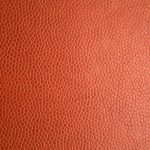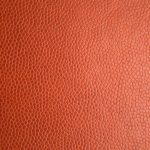When you consider using duck canvas for your projects, you might wonder how it holds up to frequent washing. While it's known for its durability, repeated laundering can lead to challenges like fading colors and diminished water resistance. You'll want to understand the best washing practices to maintain its integrity. What's really at stake during those cycles in the washing machine? And are there ways to enhance its lifespan without sacrificing its quality? These questions are crucial for anyone looking to keep their duck canvas items in top shape.
Table of Contents
Properties of Duck Canvas
Duck canvas is a durable fabric known for its heavy weight and tight weave, making it ideal for a variety of applications.
When you choose duck canvas, you're getting a robust, versatile material that stands up to wear and tear. Its thickness provides excellent resistance to abrasions, so it's perfect for items like tents, bags, and outdoor gear that need to endure rough handling.
You'll also appreciate duck canvas's water resistance. Though it's not completely waterproof, the fabric does repel moisture to some degree, allowing for outdoor use without immediate concern for rain.
Plus, it's naturally breathable, ensuring that air can circulate through the fabric, which helps prevent mildew buildup.
Another significant property is its ease of dyeing. You can find duck canvas in a range of colors and patterns, giving you plenty of options for your projects.
Its structure lends a sturdy feel while still being flexible enough for sewing and crafting.
Washing Recommendations
To keep your duck canvas items looking their best, follow specific washing recommendations that preserve its durability and appearance. First, check the care label for manufacturer instructions, as they may have specific guidelines tailored to your item. Generally, you should use cold water, as hot water can lead to shrinkage and fading.
When it comes to detergents, opt for a mild, eco-friendly soap to avoid harsh chemicals that can break down the fibers. Avoid bleach, which can discolor and weaken the fabric. If your duck canvas item is particularly dirty, pre-treat stains with a gentle stain remover before washing.
It's best to wash duck canvas items on a gentle cycle to minimize wear. After washing, air drying is ideal, as this prevents any potential heat damage from a dryer. If you must use a dryer, choose a low-heat setting, but only for a short duration to avoid shrinking.
Lastly, always store your duck canvas items in a cool, dry place to prevent moisture-related issues. By following these recommendations, you'll help maintain the longevity and aesthetic of your duck canvas pieces.
Impact of Frequent Washing
When you wash duck canvas frequently, you might notice changes in its fibers and colors.
Frequent washing can weaken the fabric's durability over time, leading to wear and tear.
You'll also want to consider how the washing process affects the color retention, as some dyes may fade with repeated exposure to water and detergent.
Fiber Durability Assessment
Frequent washing can significantly impact the durability of duck canvas fibers, making it essential to assess how this wear affects overall performance and longevity.
When you wash duck canvas regularly, you're not just removing dirt or stains; you're also putting the fibers to the test.
1. Fiber Strength
Repeated washing can weaken the fibers, reducing their tensile strength. You might notice that the fabric becomes less resistant to tears and abrasions over time.
2. Water Resistance
Many duck canvas products are treated for water resistance. Frequent laundering can gradually strip away these treatments, making the canvas less effective at repelling water and dampness.
3. Pilling and Fraying
With each wash, the risk of pilling and fraying increases. This can make your duck canvas look worn and aged, detracting from its aesthetic appeal and functional use.
Color Retention Factors
Washing duck canvas regularly not only affects its fiber durability but also plays a significant role in how well the colors hold up over time. Frequent washing can lead to fading, causing those vibrant hues to dull. The detergents you use, the water temperature, and how often you clean your fabric can all impact color retention.
To visualize how these factors affect color retention, consider the following table:
| Washing Factor | Impact on Color |
|---|---|
| Cold Water | Minimal fading |
| Hot Water | Moderate fading |
| Mild Detergent | Minimal fading |
| Harsh Detergent | Significant fading |
| Air Drying | Better color retention |
As you see, using cold water and mild detergents helps preserve the canvas's original colors. On the other hand, using hot water or harsh cleaning agents can severely diminish the vibrancy. Knowing these factors empowers you to make better choices, ensuring your duck canvas maintains its aesthetic appeal for longer. So, treat your canvas with care, and you'll enjoy its colors much longer!
Maintaining Color and Finish
To keep your duck canvas looking vibrant, you'll want to focus on color retention and finish durability.
Regular care and maintenance can make a big difference in how your fabric holds up over time.
Let's explore some effective tips to ensure your canvas stays as good as new.
Color Retention Over Time
Maintaining the vibrant colors and finish of duck canvas requires careful attention to its care and exposure over time. You'll want to ensure that the canvas looks its best and continues to hold up against fading.
- Avoid Direct Sunlight: Prolonged exposure to direct sunlight can lead to fading. Whenever possible, keep your duck canvas items in shaded or indoor areas.
- Gentle Washing: Use a gentle detergent and cold water when washing duck canvas. Harsh detergents or hot water can strip away its color and finish. Hand washing or using a gentle cycle can better preserve its appearance.
- Air Drying: Refrain from using a tumble dryer. Instead, air dry your duck canvas products away from direct heat sources. This helps maintain both the color and the fabric's integrity.
Finish Durability Testing
How can you ensure the finish of your duck canvas withstands wear and tear while keeping its vibrant color intact?
To start, it's crucial to choose high-quality duck canvas, as the material itself plays a significant role in durability. Look for fabrics treated with specialized finishes that enhance their resistance to fading and brittleness.
When it comes to testing the finish, perform abrasion tests. Lightly rub the fabric with materials that simulate everyday use, and observe how well the finish holds up.
Next, conduct a color-fastness test by exposing a small area to water and mild detergents. This'll help you assess whether the colors bleed or remain intact over time. Additionally, UV exposure tests can mimic sunlight's effects, revealing how well the finish prevents color fading.
Care and Maintenance Tips
Keeping your duck canvas looking vibrant and intact requires regular care and maintenance to prevent fading and wear over time. You want to ensure that your investment remains as beautiful as the day you bought it.
- Regular Cleaning: Spot clean your duck canvas with a damp cloth and mild soap to remove dirt and stains. Avoid using harsh chemicals as they can damage the fabric's finish.
- Avoid Direct Sunlight: Prolonged exposure to direct sunlight can lead to fading. If possible, store your duck canvas items in a shaded area when not in use or use protective covers.
- Proper Storage: When storing, make sure your duck canvas is clean and completely dry. Fold neatly and avoid cramming it into tight spaces to prevent creasing and damage.
Care Tips for Longevity
To ensure your duck canvas lasts, regularly clean and store it properly after each use. Start by brushing off any dirt or debris while it's dry. If stains occur, address them quickly to prevent further damage. Use a gentle soap with warm water and a soft cloth to clean the area, avoiding harsh chemicals that can degrade the fabric's fibers.
After washing, air dry your canvas completely before storing. This prevents moisture buildup, which can lead to mold or mildew. When arranging it for storage, avoid folding it in the same crease repeatedly; instead, roll it or hang it to prevent permanent marks and to maintain its shape.
Consider applying a fabric protector specifically designed for duck canvas to enhance its resistance to stains and water. If you plan on using your canvas in harsh conditions, check the weather beforehand, as extreme elements can affect its longevity.
Lastly, periodically inspect your duck canvas for any signs of wear and tear. Catching small issues early will save you from more significant repairs later. By following these care tips, you'll enjoy the durability and beauty of your duck canvas for years to come.
Alternative Cleaning Methods
If you prefer eco-friendly options, vinegar and baking soda can be effective in cleaning your duck canvas without harsh chemicals. These natural ingredients aren't only gentle on the fabric but also friendly to the environment.
Pre-treat Stains: Mix equal parts of white vinegar and water in a spray bottle. Spray the solution directly on any stains and let it sit for about 10-15 minutes.
Create a Paste: In a bowl, combine baking soda with a small amount of water to form a thick paste. Apply this paste to the stained areas, then gently scrub with a soft brush or cloth.
Rinse Thoroughly: After treating the stains, rinse the canvas with cold water. Make sure to remove any residue from the vinegar and baking soda so they don't affect the fabric over time.
Frequently Asked Questions
Is Duck Canvas Biodegradable or Eco-Friendly?
Duck canvas isn't completely biodegradable, but it's often made from natural fibers, making it more eco-friendly than synthetic materials. You'll find that many brands focus on sustainable practices to minimize environmental impact as well.
Can Duck Canvas Resist Mildew and Mold?
Yes, duck canvas can resist mildew and mold due to its tightly woven fibers and often treated surface. However, if exposed to moisture for extended periods, it's best to keep it dry to maintain its resistance.
Does Duck Canvas Require Specific Detergents for Washing?
Duck canvas doesn't require specific detergents for washing, but a mild detergent works best. You'll want to avoid harsh chemicals that can damage the fabric. Always check care instructions for any additional recommendations.
How Durable Is Duck Canvas Compared to Other Fabrics?
Duck canvas is incredibly durable, often outlasting many other fabrics. You'll find its strength and versatility make it ideal for heavy-duty uses, such as bags and outdoor gear, ensuring it withstands wear and tear effectively.
Is There a Difference Between Cotton and Synthetic Duck Canvas?
Yes, there's a big difference between cotton and synthetic duck canvas. Cotton offers breathability and softness, while synthetic versions provide enhanced durability and moisture resistance, making them suitable for various applications and outdoor environments. Choose based on your needs.
- How Does Ring Spun Cotton Affect Garment Fit and Shape Retention? - August 13, 2024
- What Are the Challenges in Producing Ring Spun Cotton? - August 13, 2024
- Is Ring Spun Cotton Suitable for Plus-Size Clothing? - August 13, 2024







